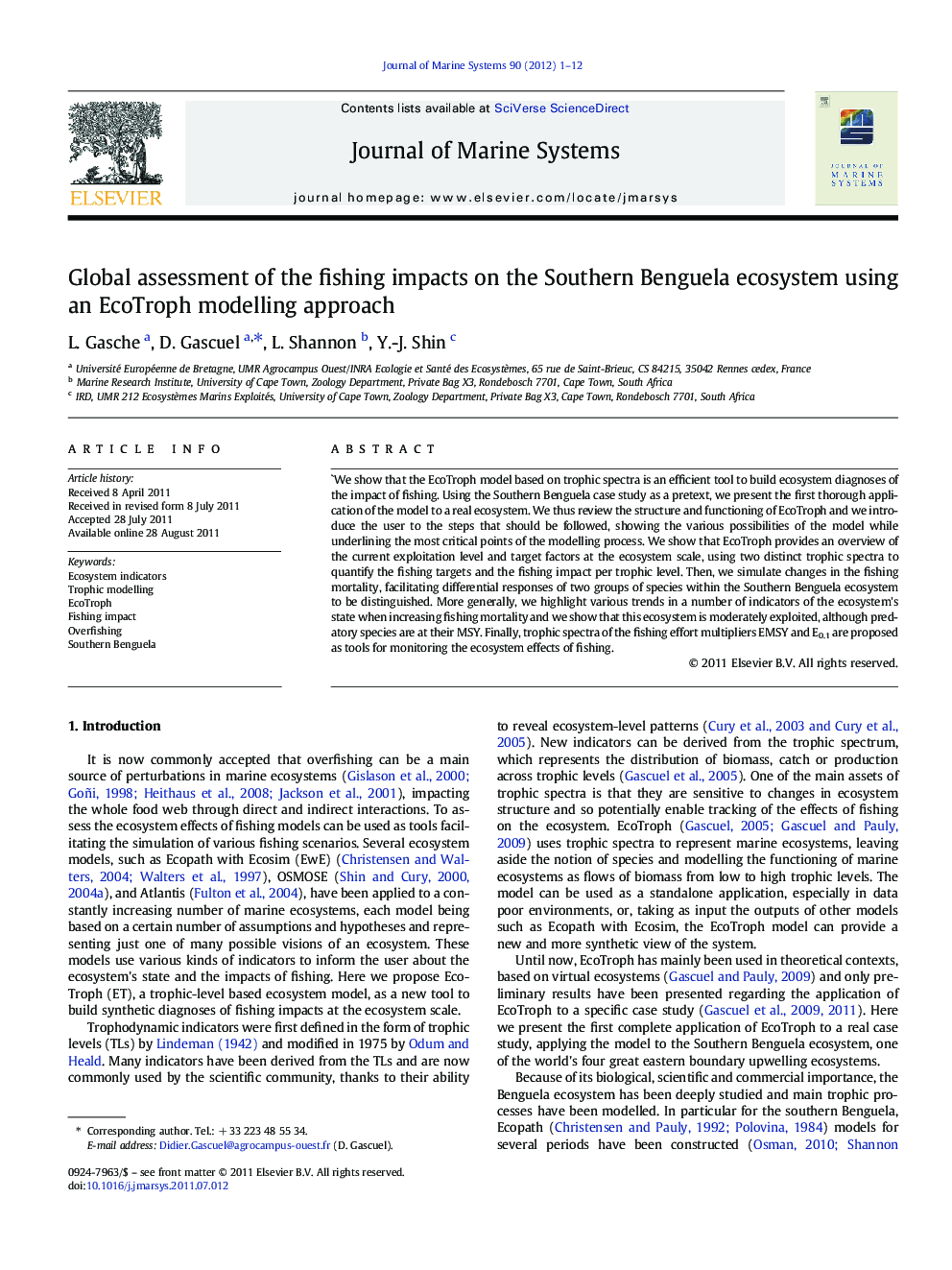| Article ID | Journal | Published Year | Pages | File Type |
|---|---|---|---|---|
| 6387249 | Journal of Marine Systems | 2012 | 12 Pages |
`We show that the EcoTroph model based on trophic spectra is an efficient tool to build ecosystem diagnoses of the impact of fishing. Using the Southern Benguela case study as a pretext, we present the first thorough application of the model to a real ecosystem. We thus review the structure and functioning of EcoTroph and we introduce the user to the steps that should be followed, showing the various possibilities of the model while underlining the most critical points of the modelling process. We show that EcoTroph provides an overview of the current exploitation level and target factors at the ecosystem scale, using two distinct trophic spectra to quantify the fishing targets and the fishing impact per trophic level. Then, we simulate changes in the fishing mortality, facilitating differential responses of two groups of species within the Southern Benguela ecosystem to be distinguished. More generally, we highlight various trends in a number of indicators of the ecosystem's state when increasing fishing mortality and we show that this ecosystem is moderately exploited, although predatory species are at their MSY. Finally, trophic spectra of the fishing effort multipliers EMSY and E0.1 are proposed as tools for monitoring the ecosystem effects of fishing.
⺠The EcoTroph model is a simplified representation of marine ecosystems functioning. ⺠As a case study, the model is applied to the Southern Benguela ecosystem. ⺠EcoTroph is an efficient tool to build ecosystem diagnoses of the fishing impact. ⺠The current fishing efforts lead to the full exploitation of the high trophic levels. ⺠Indicators are proposed to assess the impact of fishing at the scale of the food web.
